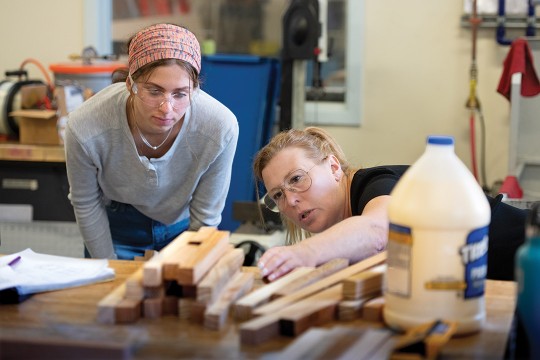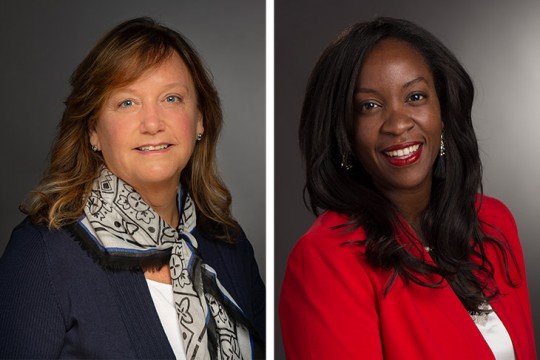
Sarah Brownell
Senior Lecturer
Sarah Brownell
Senior Lecturer
Currently Teaching
In the News
-
February 2, 2024
![college student watching professor looking at a stack of wood lengthwise.]()
Students lean into technology and design to improve the environment
Students in Campus Ecology explored how culture, art, science, and design influence their views and understandings of nature. They also discussed how interdisciplinary collaboration and leaning into the intersection of technology, the arts, and design could improve communication and understanding of ecological concepts and sustainability goals.
-
December 8, 2023
![side by side portraits of college professors Betsy Dell and Makini Beck.]()
RIT leading STEM co-mentoring network
Betsy Dell, professor in the College of Engineering Technology, and Makini Beck, assistant professor in the College of Liberal Arts and the School of Individualized Study, are leading a National Science Foundation-funded project to support minoritized women students in STEM through a co-mentoring network.
-
August 17, 2022
![student standing at the top of a stairwell.]()
Engineering Grand Challenges Scholars Program grows integrating community-based projects to balance technical skills
Jessica Wagner and her classmates put together a plan to tame the traffic near Rochester’s International Plaza on Clinton Avenue. Students like Wagner, who are participating in RIT’s Engineering Grand Challenges Scholars program, are finding ways to integrate technical coursework with personal interests for careers that matter.
-
June 15, 2021
Brownell joins blog on community-engaged engineering





